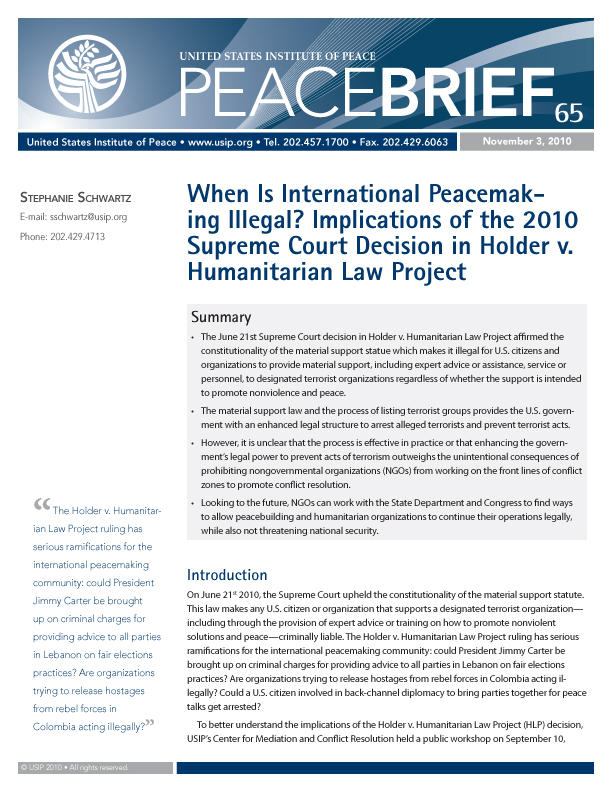The June 2010 Supreme Court decision in Holder v. Humanitarian Law Project upheld the constitutionality of the material support law which makes it illegal for U.S. citizens and organizations to provide support, including expert advice and training, to designated terrorist organizations regardless of whether that support is intended to promote peace. This Peace Brief captures the discussion from a public event convened by the U.S. Institute of Peace on September 10, 2010.

Summary
- The June 21st Supreme Court decision in Holder v. Humanitarian Law Project affirmed the constitutionality of the material support statue which makes it illegal for U.S. citizens and organizations to provide material support, including expert advice or assistance, service or personnel, to designated terrorist organizations regardless of whether the support is intended to promote nonviolence and peace.
- The material support law and the process of listing terrorist groups provides the U.S. government with an enhanced legal structure to arrest alleged terrorists and prevent terrorist acts.
- However, it is unclear that the process is effective in practice or that enhancing the government’s legal power to prevent acts of terrorism outweighs the unintentional consequences of prohibiting nongovernmental organizations (NGOs) from working on the front lines of conflict zones to promote conflict resolution.
- Looking to the future, NGOs can work with the State Department and Congress to find ways to allow peacebuilding and humanitarian organizations to continue their operations legally, while also not threatening national security.
About this Brief
The June 2010 Supreme Court decision in Holder v. Humanitarian Law Project upheld the constitutionality of the material support law which makes it illegal for U.S. citizens and organizations to provide support, including expert advice and training, to designated terrorist organizations regardless of whether that support is intended to promote peace.
This Peace Brief captures the discussion from a public event convened by the U.S. Institute of Peace on September 10, 2010 to better understand how the decision affects the peacebuilding community. The author, Stephanie Schwartz, is a program specialist in the Institute’s Center for Mediation and Conflict Resolution.